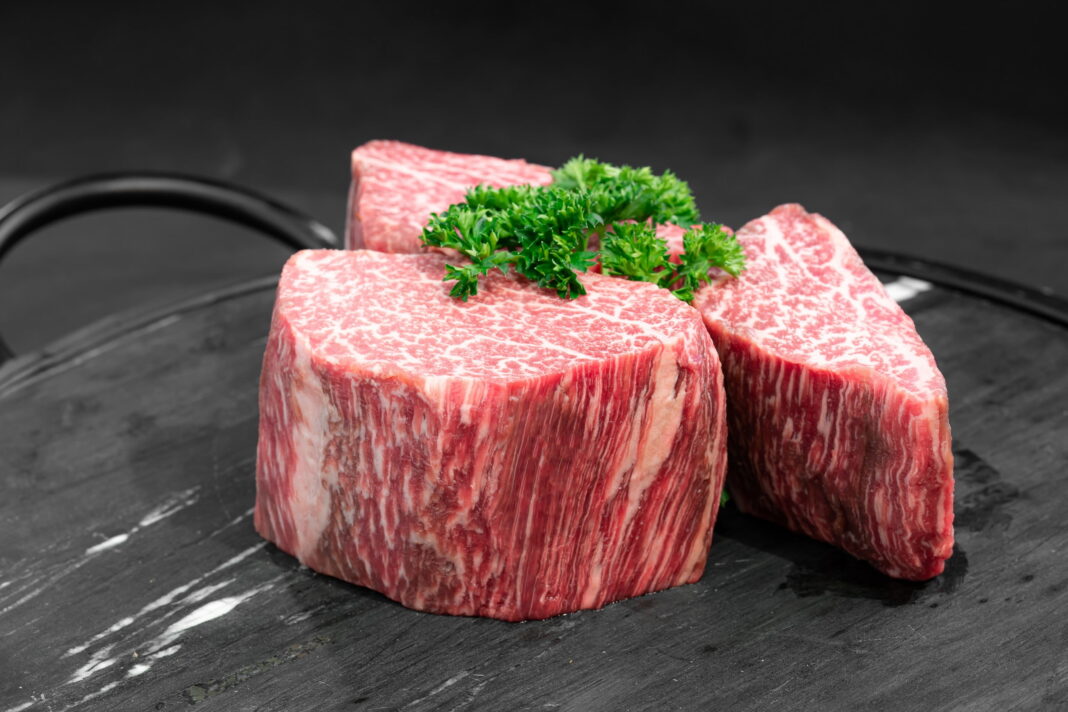Established in December 2020, Kai Wagyu is now on a mission educating people about authentic Wagyu by importing the highest quality of the said meat to American land. They source their products directly from Top Farm, which is located in Saroma, Hokkaido. Their beef is non-GMO, nonantibiotics or added hormones, and certified humane. To track the authenticity of their Wagyu, Kai Wagyu also provides a certificate enclosed within the package, which details a tracking number that can be monitored on the official Japanese website.
The Wagyu meat Kai Wagyu imports from Japan are all stored and processed in Kai Wagyu’s USDA-approved processing facility in Los Angeles. This allows the team to offer wholesale options to supply hotels, restaurants, butcher shops, grocery stores, and the like, along with their retail options. For online orders, customers can also enjoy free FedEx Overnight Shipping with purchases over $198.
If you are craving premium meat but cannot go out, do not worry because Kai Wagyu ships their beef through FedEx and usually arrives within one to two days. They also preserve the meat through careful packaging, including dry ice and/or ice packs to ensure it stays frozen during shipment.
How do I store it?
With proper handling and storage, the meat will stay fresh inside the freezer for up to 12 months. However, it should be noted that this is only possible with vacuum-sealed packaging. When storing it in the refrigerator, it is recommended to be kept for no longer than two to three days for thawing. In addition, refreezing is acceptable only if it has not been exposed to air and kept within its vacuum-sealed packaging, given that more than 24 hours have not passed since you stored it in the refrigerator. Although the Wagyu may lose some of its flavorings due to the thawing and refreezing processes, it is still perfectly fine to consume.
How to cook it?
The first thing to do is to take the Wagyu out from the freezer for thawing. Ideally, it should be defrosted overnight; however, you can opt to submerge it in cold water for a few hours if you are in a rush. For its seasoning, it is advisable to add only a light layer of salt and pepper, but if you have a favorite go-to steak seasoning and want to experiment, you can also do that. Make sure to use it sparingly because when it comes to Wagyu, a little goes a long way.
After seasoning, the team behind Kai Wagyu recommends pan-frying using stainless steel or cast iron pan for starters. Some prefer to grill the meat, which is also perfectly fine, but the downside is that the high-fat content can cause flare-ups, which may lead to uneven cooking. Moreover, while some regularly enjoy having their steak cooked on the more medium to well-done end, Wagyu is highly recommended to be cooked at medium-rare since a higher degree of doneness will lead to a loss of texture and flavor. By cooking Wagyu at medium-rare, the taste and flavoring of the meat can be optimized.
To cook your Wagyu, preheat the cast iron pan over medium-high heat and grease the pan lightly with a bit of fat cut from the edges of the wagyu and a tender amount of olive oil. For a rare finish for the steak, it should be cooked for approximately three minutes on either side, and for medium-rare, four minutes on each side is advised. These numbers only serve as approximations; hence, you should remain attentive to ensure that your Wagyu is finished the way you prefer. Most importantly, try to achieve a perfect golden brown sear and crust on both sides.
If you want to try authentic Wagyu sourced from Japan, Kai Wagyu is the company to go to. They seek to create exclusive, one-of-a-kind dining experiences by bringing the culinary tradition of Japanese Wagyu beef from cattle farms onto your plate. To order, you can visit their website or Instagram page.








